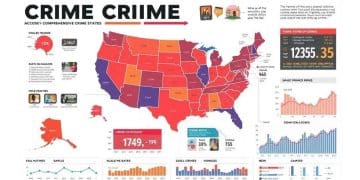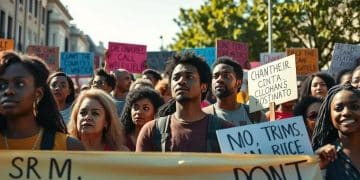Best gun control debate: understanding the issues
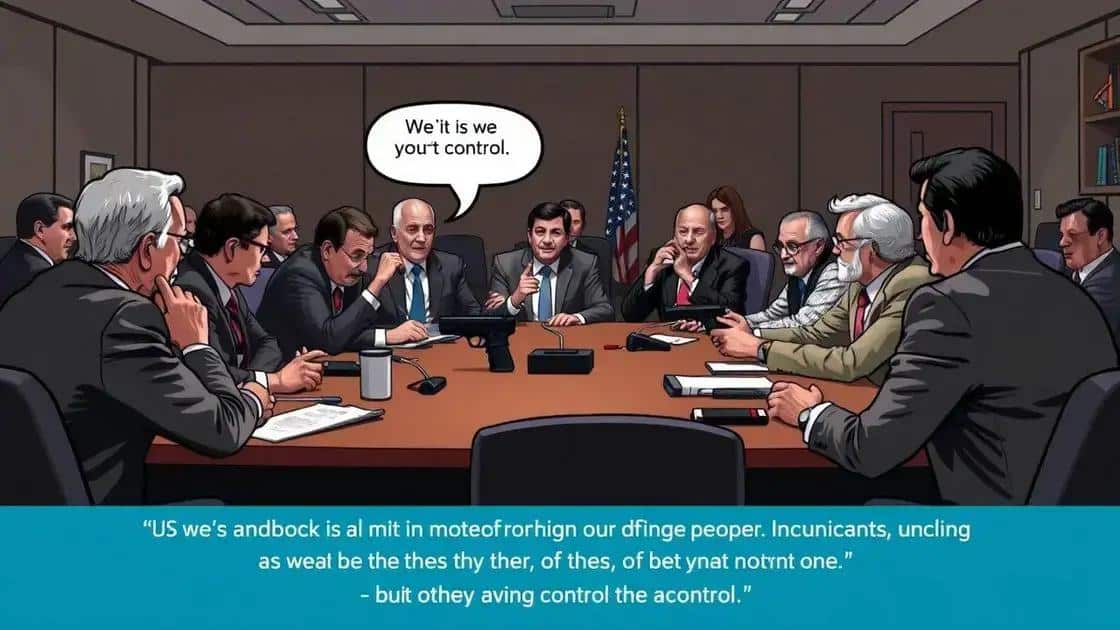
The best gun control debate examines the effectiveness of legislation on crime rates, balancing individual rights with public safety through various arguments and counterarguments.
In the world of firearms, the best gun control debate sparks intense discussion and passionate opinions. Are stricter laws the answer, or do they infringe on rights? Let’s dive into this complex issue.
historical context of gun control
To understand the current landscape of gun control, it’s essential to explore its historical context. This history reveals how society’s views on firearms have evolved over time.
The roots of gun control in the United States trace back to the colonial period, where the fear of oppressive rule led to a strong emphasis on the right to bear arms. As societies expanded, so too did the conversations around firearm regulations.
The Second Amendment
The Second Amendment of the U.S. Constitution, ratified in 1791, states, “The right of the people to keep and bear Arms, shall not be infringed.” This line has become a focal point in the gun control debate.
In the early 20th century, various laws emerged aimed at controlling the sale and possession of weapons, often as reactions to crime waves and public safety concerns.
Key Legislative Milestones
- 1934: The National Firearms Act placed restrictions on machine guns and sawed-off shotguns.
- 1968: The Gun Control Act was established following the Kennedy assassination, regulating sales of firearms.
- 1993: The Brady Handgun Violence Prevention Act introduced background checks for gun purchases.
- 2004: The Assault Weapons Ban expired, igniting further debates.
These events reveal how societal fears and desires for safety shaped the laws we see today. They also highlight the constant balancing act between individual rights and community safety. As public opinions shifted, so did laws, often reflecting the broader cultural climate regarding firearms.
Today, the debate continues, with advocates on both sides referencing this historical context to support their positions. Understanding where we came from helps clarify the discussions on what regulations are necessary and effective in today’s world.
key arguments for stricter firearm laws
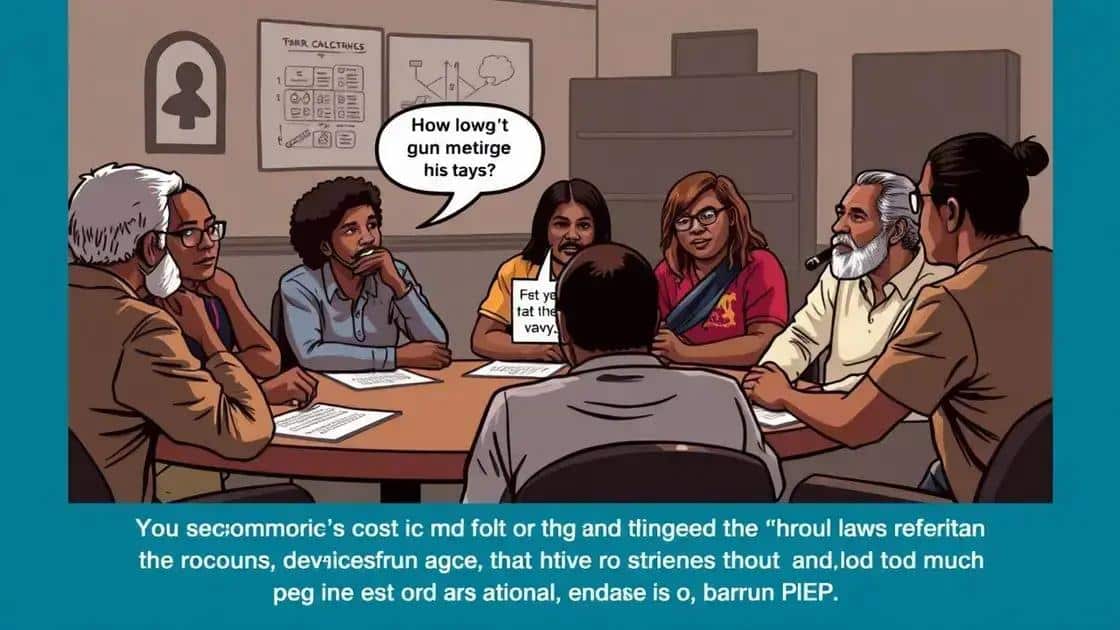
The debate surrounding stricter firearm laws is grounded in numerous key arguments that highlight the need for enhanced regulations. Advocates for stricter laws believe that such measures can significantly reduce gun violence and save lives.
One of the primary arguments is that stronger regulations lead to fewer firearms in the hands of those who may misuse them. By implementing comprehensive background checks, potential buyers can be scrutinized more thoroughly. This helps keep guns away from individuals with a history of violence or mental health issues.
Public Safety Concerns
Supporters argue that public safety should be the top priority. Statistics show that countries with strict gun control laws experience lower rates of gun-related deaths. This evidence supports the idea that sensible legislation can protect lives.
- Reduction in mass shootings
- Decreased suicide rates involving firearms
- Prevention of domestic violence incidents
- Fewer accidental shootings in homes
Another argument centers on the potential to decrease crime rates overall. When firearms are regulated, illegal access is more difficult. This can lead to lower crime rates, as fewer individuals can acquire guns for illegal activities.
Community Support and Resources
Community support for stricter laws also plays a crucial role. Many neighborhoods have come together, advocating for regulations that promote safety. Programs that educate the public about gun safety and responsible ownership are vital. Resources that guide community members on these issues can foster a culture of safety and awareness.
Ultimately, the conversations surrounding stricter firearm laws highlight the balance between individual rights and public safety. These arguments continue to shape the ongoing discourse, encouraging citizens to consider the implications of their stance.
counterarguments on gun rights
Counterarguments on gun rights often challenge the push for stricter firearm regulations. Advocates for gun rights emphasize the importance of the Second Amendment, arguing that it guarantees individual freedom to own and carry firearms.
One major point in this debate is the belief that gun ownership is a fundamental right. Supporters argue that having the ability to defend oneself is essential for personal safety. They often cite examples where armed citizens have prevented crimes or defended themselves from attackers.
Protection Against Tyranny
Another argument centers on the idea that a well-armed populace serves as a check against government tyranny. This perspective holds that citizens should always have the means to oppose oppressive government actions. Historical references to revolutions reinforce this viewpoint, suggesting that firearms are necessary for maintaining freedom.
- Rights of self-defense
- Protection from governmental oppression
- Historical examples of armed resistance
- The deterrent effect of armed citizens
Additionally, critics of gun control often argue that stricter laws do not effectively reduce crime. They point out that criminals typically do not obey laws, thus regulations would primarily impact law-abiding citizens. This leads to concerns that such policies make it more difficult for good people to protect themselves and their families.
Education and Responsibility
Proponents of gun rights advocate for education and responsible ownership rather than restrictive laws. They believe that teaching safe handling and storage of firearms can reduce accidents and misuse. Programs that promote responsible gun ownership can empower citizens to own firearms safely.
These arguments highlight the complexity of the gun rights debate. Understanding the various positions helps to create a more informed discussion on firearms and the implications of legislation.
impact of legislation on crime rates
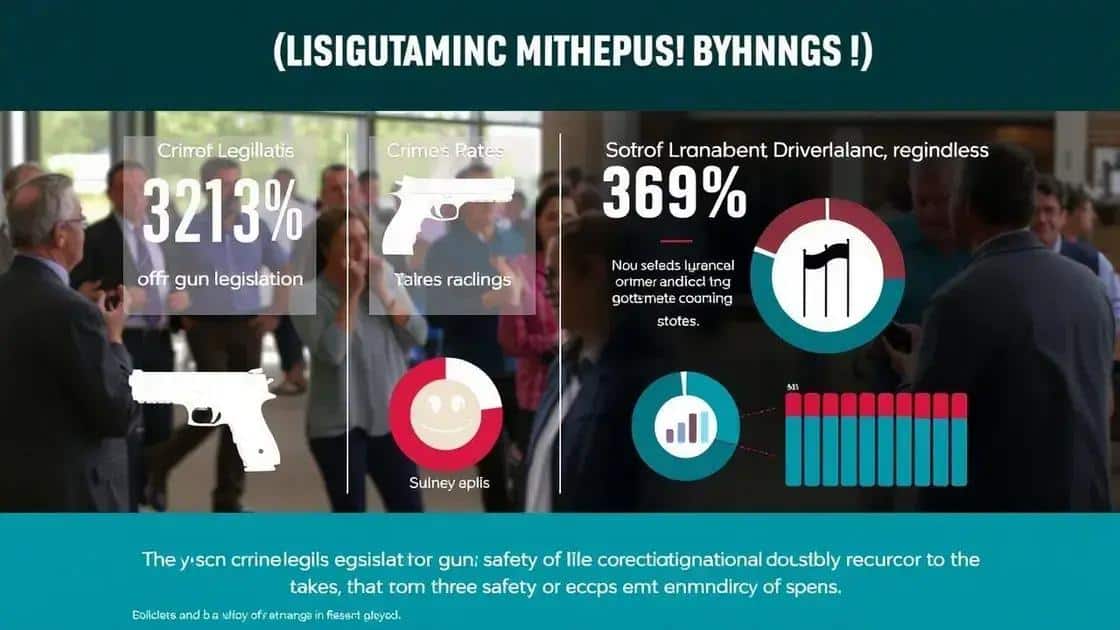
The impact of legislation on crime rates is a crucial aspect of the gun control debate. Many people believe that stricter gun laws can lead to a decrease in crime, while others argue the opposite. Understanding this impact helps shape policies and public opinion.
Research shows mixed results when examining the correlation between gun control laws and crime rates. Some studies suggest that areas with stricter laws experience lower rates of gun violence and overall crime. Others argue that crime rates are influenced by various factors beyond legislation alone.
Statistics Supporting Stricter Laws
Countries with stringent firearm regulations tend to report significantly fewer gun-related deaths. For example, nations like Japan and the UK demonstrate low firearm homicide rates, which many attribute to rigorous controls. This evidence supports the idea that legislation can effectively reduce violence.
- Lower homicide rates in countries with strict gun laws
- Examples of reduced gun violence after legislative changes
- Correlation between gun ownership rates and crime rates
- Impact of waiting periods and background checks on violent crime
On the other hand, opponents of stricter legislation argue that crime rates do not always correspond to law changes. They highlight instances where crime remained unchanged or even increased despite new regulations. This perspective suggests that stricter laws may not deter individuals who are already willing to commit crimes.
The Role of Community and Enforcement
The effectiveness of gun laws can also depend on community engagement and law enforcement. Communities that actively promote safety and responsible gun ownership often see better outcomes. When laws are enforced fairly and consistently, they can lead to lower crime rates and safer environments.
Overall, the relationship between legislation and crime rates is complex. Different regions may experience varying impacts based on their individual circumstances, law enforcement practices, and cultural attitudes toward firearms. These factors all contribute to ongoing discussions about how best to approach gun control and public safety.
FAQ – Frequently Asked Questions about Gun Control and Crime Rates
What are the main arguments for stricter gun laws?
Supporters argue that stricter gun laws can reduce gun violence, enhance public safety, and prevent firearms from getting into the wrong hands.
How does gun legislation impact crime rates?
Research shows mixed results; some studies link stricter laws to lower crime rates, while others find no significant effect.
What are common counterarguments against stricter gun control?
Opponents believe that stricter laws infringe on personal rights, do not effectively deter crime, and may leave law-abiding citizens defenseless.
Why is community engagement important in gun control discussions?
Community engagement ensures diverse perspectives are heard, fostering collaboration to find balanced solutions that prioritize safety and individual rights.

